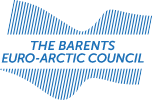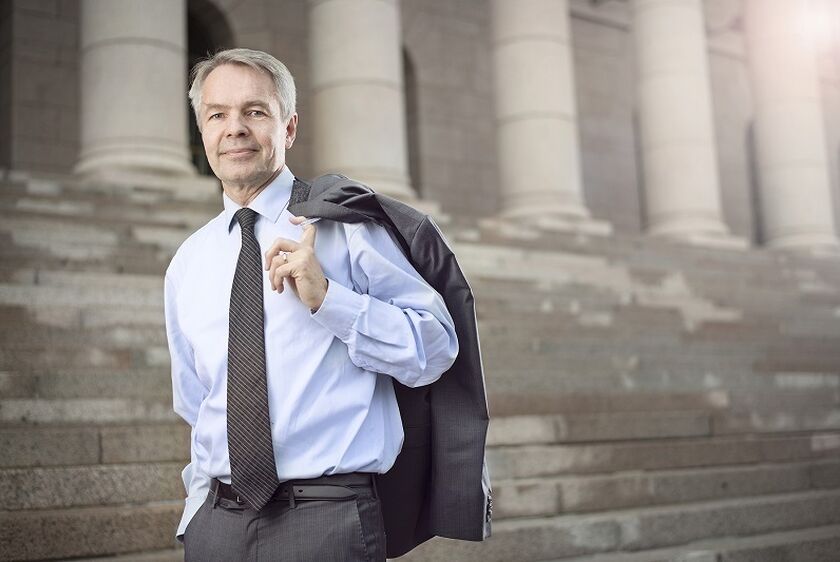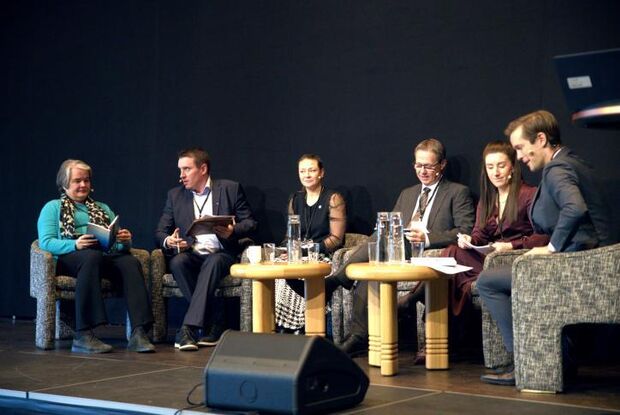A region of opportunities
I believe the strengths of the Barents region lie in its remoteness, resilience, and exceptional natural resources. The region is rich in opportunities for a high quality of life: multidisciplinary studies, multifaceted jobs and sustainable economic growth. However, there are also unique challenges in the long distances, low population density, and threats posed by climate change. We need the Barents Cooperation to create best practices about how to preserve our collective environment, and how to work together on practical issues ranging from health to education while supporting the rich cultural heritage and traditional knowledge of the Indigenous Peoples living in the region. This cooperation between the people of the Barents region remains the most important asset for its sustainable future.
Acting in solidarity
The Barents Cooperation has been one of the key cornerstones of regional cooperation in the Arctic since 1993. I have personal memories of this cooperation as a frequent visitor to the region as a Minister of Foreign Affairs, but also in my previous position as a Minister of the Environment. I also had the pleasure to sign the Ottawa Declaration, which established the Arctic Council as the other key forum for cooperation in the North. I see these two forums as complementary to each other, with more and more synergies emerging between the work of the Barents Euro-Arctic Council and Arctic Council. During the Finnish chairmanship, we plan to have a close dialogue with the Russian Arctic Council presidency through a project-based approach.
A source of strength under pressure
At a time when international cooperation is under pressure, we need strong multilateral platforms like the Barents cooperation to maintain stability more than ever. Dialogue with all participants and practical cooperation is vital if we are to find the best solutions for the Barents region. Despite all the political tensions that we have between Russia and the West, the Barents Cooperation has been able to maintain constructive cooperation and dialogue, and we are doing our utmost to secure that this will continue. Peace, stability, well-functioning cooperation and a low level of tension with our Arctic neighbors has been and remains at the top of Finland’s foreign policy agenda.
In 2020, COVID-19 pandemic hit the world, creating many challenges for cross-border cooperation. We have to thank the Norwegian Barents presidency for being able to adapt to this new reality swiftly and effectively. Norway transformed cooperation into an effective virtual format- a great achievement that will serve all further cooperation. We need to carefully study how we can be better prepared for similar challenges in the future and ensure that borders do not close again.
In its role as chair, Finland will continue to work for smooth-functioning cross-border cooperation. Finland shares a 1300 km-long border with Russia and cooperates bilaterally with Russia in various formats. The uninterrupted continuation and adequate funding of the EU-Russia CBC programmes and Northern Dimension partnerships are of major importance to cooperation in the Barents region; the Barents Financial Mechanism (BFM) that will be operational in the beginning of the 2022 will be a key instrument for small-scale practical cooperation between all interested parties.
Bridging distances, building connections
A well-functioning infrastructure is vital for connecting the people living and working in the Barents region. This includes physical road, rail, sea and air connections, but also connections through digital means. The future development and resilience of the Barents region depends on securing this connectivity through sustainable, green, and smart solutions.
Finland will seek to strengthen cooperation in transport and logistics with an emphasis on digitalisation, transport corridor development and climate-friendly transport, including the use of alternative fuels. We will use the recommendations of the Joint Barents Transport Plan (JBTP) to develop our work programme and take forward the work under the Barents Euro-Arctic Transport Area. Closer cooperation with the Northern Dimension Partnership on Transport and Logistics will help in adopting intelligent transport and connectivity solutions and developing transport systems in the Barents region. The aim is to serve local communities as well as business and industry in building a sustainable future for all.
Our goal is also to support the exchange of information between all key players and entrepreneurs, students and researchers working in priority areas. The Finnish chairmanship will therefore be launching an interactive digital platform to help young people find places of study and work in the Barents region. In terms of connections, it is important to raise the profile of creativity, culture and the arts as a cross-cutting theme promoting competitiveness, inclusion, comfort and well-being in the Barents region. This aspect is emphasized, for example, in the Barents Scholarship for Cultural Cooperation. The promotion of culture and the arts sees many positive effects on the attractiveness of regions as work and living environments; attracting experience and expertise that is needed in order to build resilient Barents communities.
Building a sustainable future for all
Finland has several aims for its chairmanship. The Barents is a region which is facing rapid climate change combined with the cumulative impacts of other ongoing societal and economic changes. This challenges us to promote the prosperity of the region by taking care of the uniqueness of the fragile northern environment and by enabling responsible, sustainable and environmentally sound economic activities to the area. The Finnish presidency will emphasize the people who want to build their future in the Barents region under the motto of “Barents - region of opportunities.” This means that we believe that the Barents can facilitate the best practices for our joint challenges, offering a high quality of life for all as a place to study, work, and raise families.
We will therefore focus our presidency on promoting sustainable development, a fundamental part of Finland’s policy. To achieve this, we, we must ensure that the future of the Barents region is built on economic, environmental, social and cultural sustainability as well as carbon neutrality. The UN 2030 Agenda for Sustainable Development, the European Green Deal, and the Barents Programme 2019–23 all form the basic starting points for Finland’s activities in the Barents Euro-Arctic Council. Committed to the UN Biodiversity Convention, Finland particularly wants to showcase the Barents region as an important example of safeguarding biodiversity. The aim is to link regional work with global work on biodiversity and to encourage ambitious actions concerning nature.
We need also to secure for everyone in the region access to rights and equal opportunities. In the Barents Cooperation, Finland will support young people´s participation in decision-making in all matters affecting their lives, from environment to culture and from education to active working life. It is imperative to secure regular cross-border mobility opportunities for youth to give them the opportunities to contribute to the development of democratic and inclusive societies and understand other people’s cultures, upbringing and backgrounds. Through encounters and projects, young people can build a common identity, promote diversity, and foster mutual understanding in the region.









